A major issue that South Africa faces is the question of food security, with the Human Sciences Research Council (HSRC) reporting that more than 60% of households are affected by it. While rising food costs are one contributing factor, our dire unemployment statistics and inequality levels mean that the issue of food security is embedded within our systems.
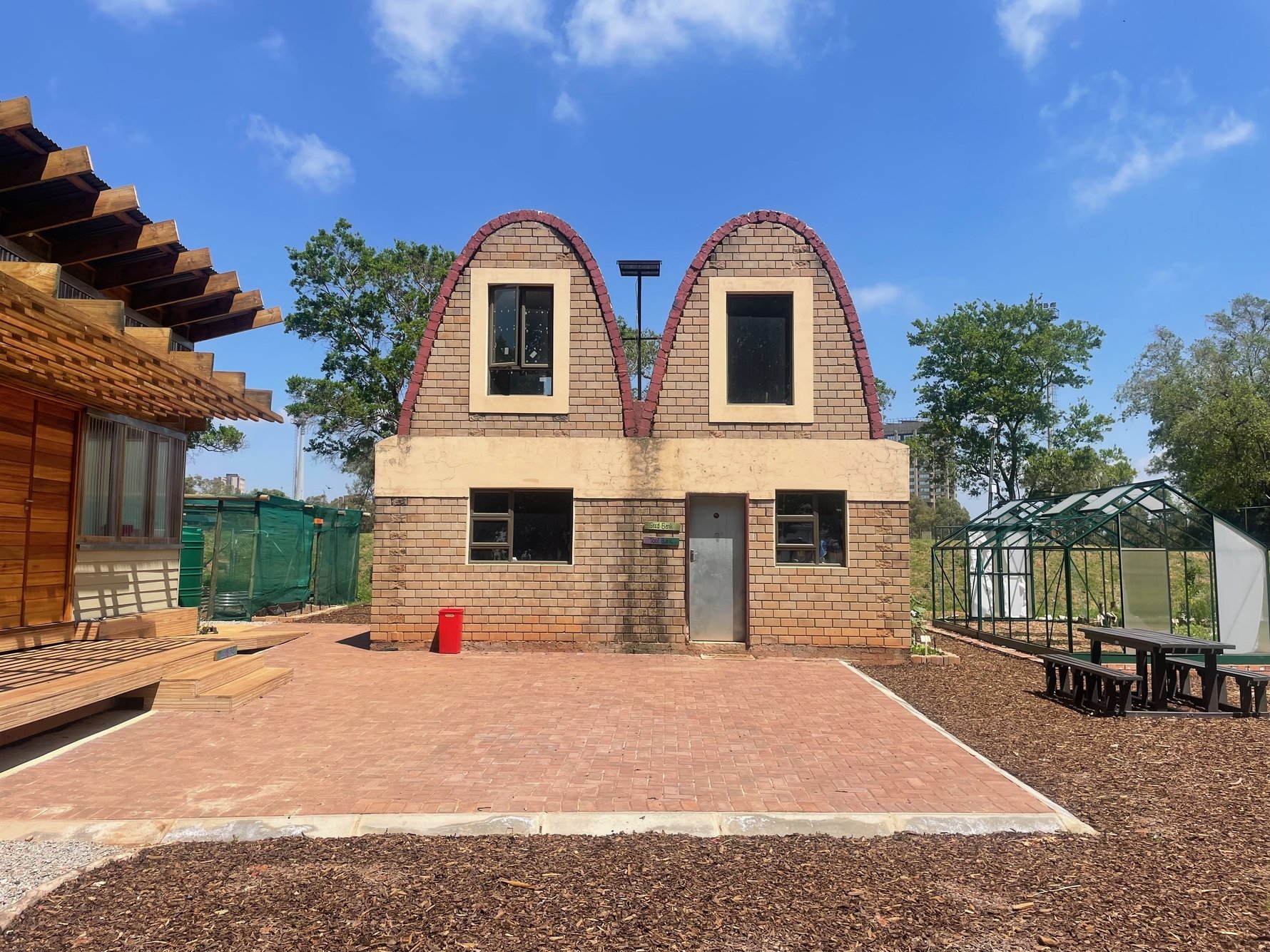
At the University of the Witwatersrand this has been consistently raised by the student body as prohibiting the process of learning, but also affecting the daily lives of students. And while the Wits Citizenship and Community Outreach (WCCO) provides meals to students in need from the communal kitchen, the question of sourcing affordable ingredients has lingered.
"Urban gardening offers us an opportunity to reimagine the city not just as concrete and buildings but as a place where food can be grown, ecosystems can thrive, and communities can build resilience." – Nkululeko Motloung, founder of Plenty Green Africa
In this regard, the Wits Food Sovereignty Hub is an important intervention that not only creates gardens using regenerative farming techniques, thus providing a bounty of veg and greens, but also creates active dialogue and engagement with food sovereignty, climate action, and sustainability.
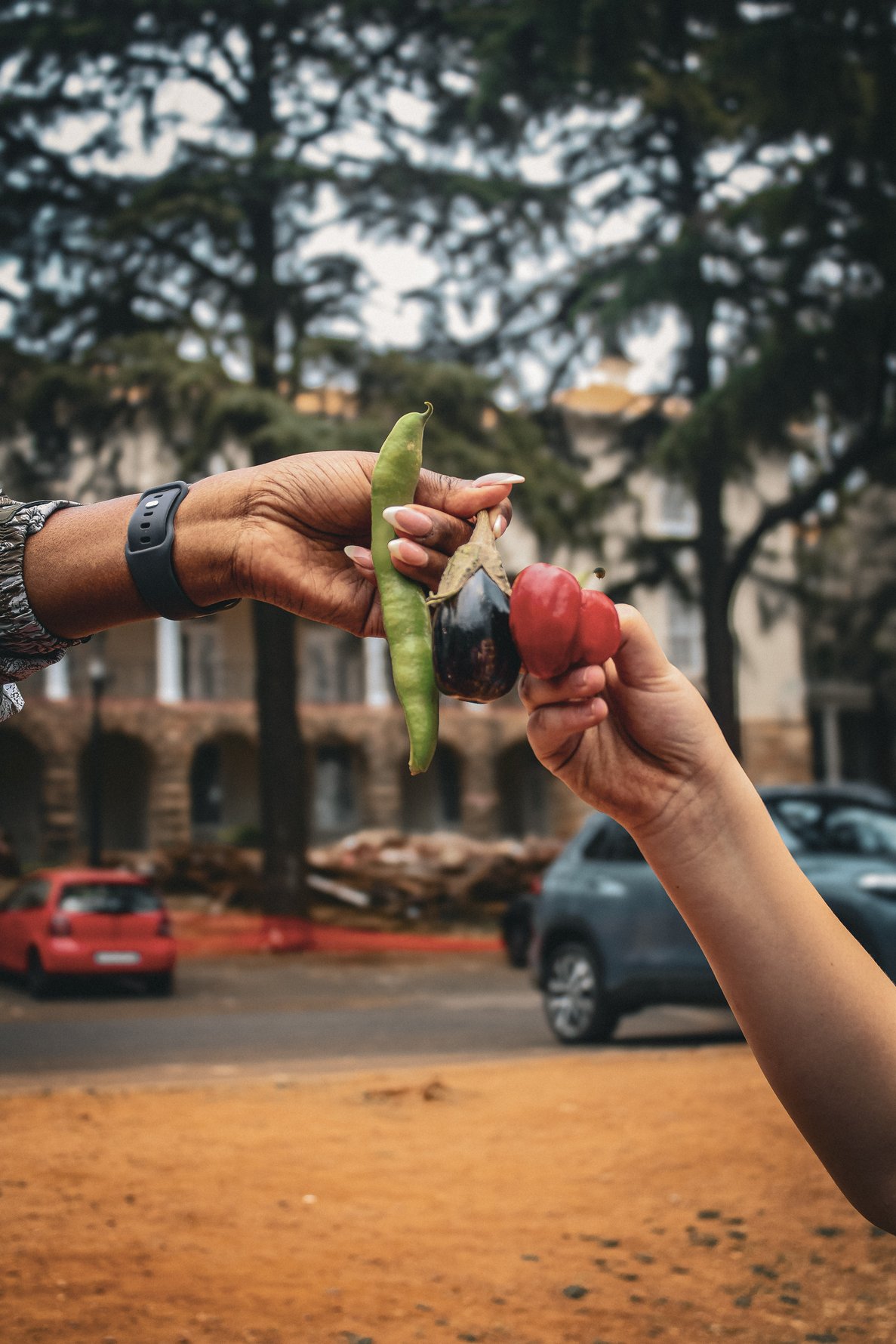
Photo: Siyamthanda Qoma.
Featured in the 2025 edition of Jozi My Jozi Walks, we loved how the Wits Food Sovereignty Hub showed that urban agriculture can not only transform city living and address food insecurity, but also be fun in the process.
To learn more about the movement, we joined Nkululeko Motloung – urban farmer, sustainability consultant, and founder of Plenty Green Africa – for a tour of the gardens and an inside look at the disruptive power of urban farming. Plenty Green Africa, a consultancy focused on regenerative farming, permaculture, and sustainable food systems, has played a key role in the Hub’s success – supporting everything from garden installations and maintenance to seed saving, foraging workshops, and environmental education.
A living classroom
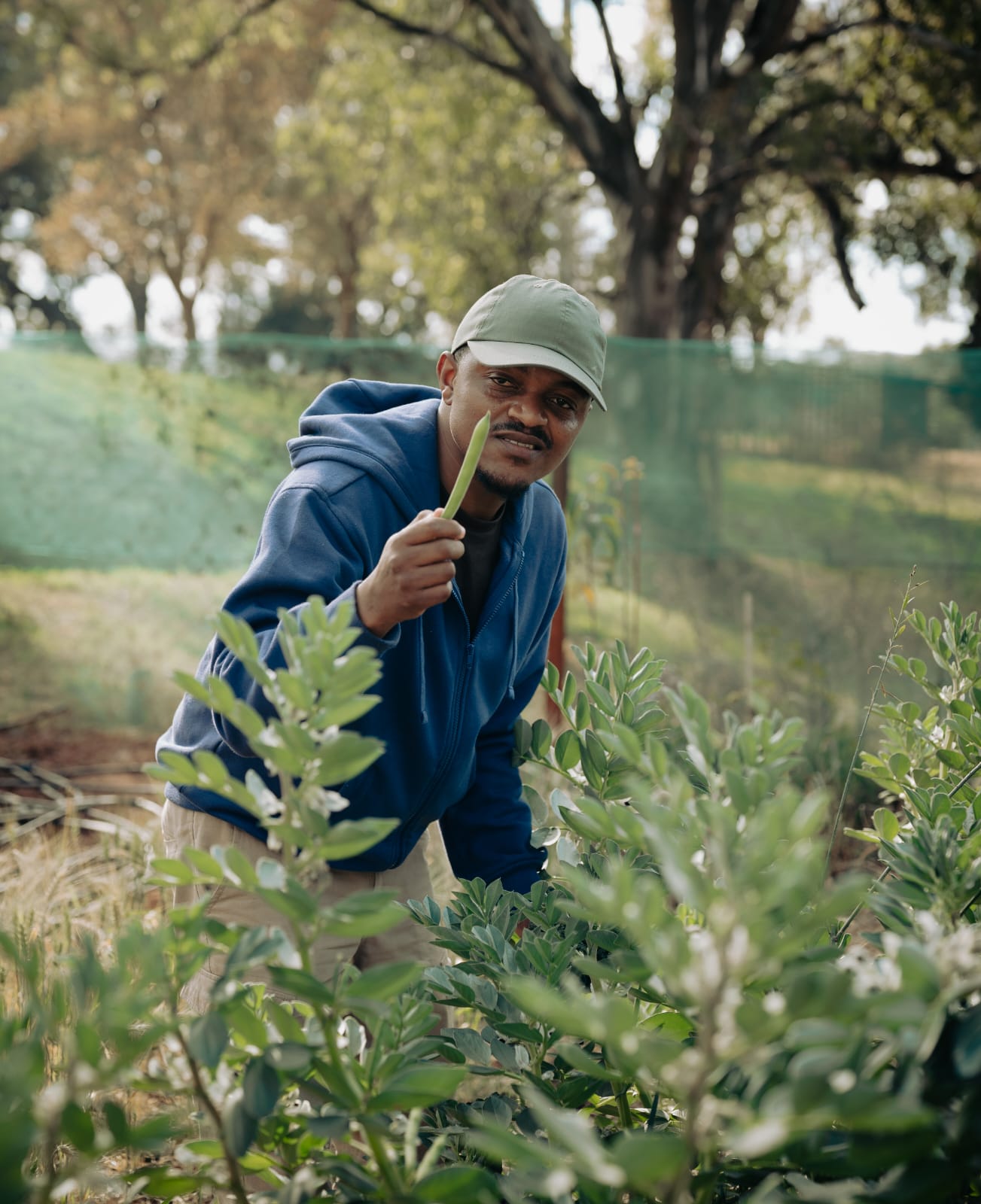
Nestled behind the futsal courts close to the Wits Club, the Wits Food Sovereignty Hub is a humble space compared to many of the other grander buildings on the campus. Here, we find Motloung deep in conversation with one of the student volunteers.
The Wits Food Sovereignty Hub is a collaboration between Wits University through WCCO, the Co-operative and Policy Alternative Centre (COPAC), and Plenty Green Africa, and makes up a growing network of gardens on the campus. While the core focus is the provision of food through zero-input cost farming methods, Motloung explains how it goes further than this, acting as "A living classroom where students, activists, and growers collaborate around food sovereignty, sustainability, and climate action."
Indeed, while we were talking with Motloung, we get shushed by a Climate Anthropology class who find themselves exploring the garden as part of their lecture. Motloung explained how they frequently hold workshops on different farming methods and sustainable city living, and that through these and their volunteer-based system, they are trying to grow community around the gardens as well.
"[The Wits Food Sovereignty Hub] is a living classroom where students, activists, and growers collaborate around food sovereignty, sustainability, and climate action." – Nkululeko Motloung
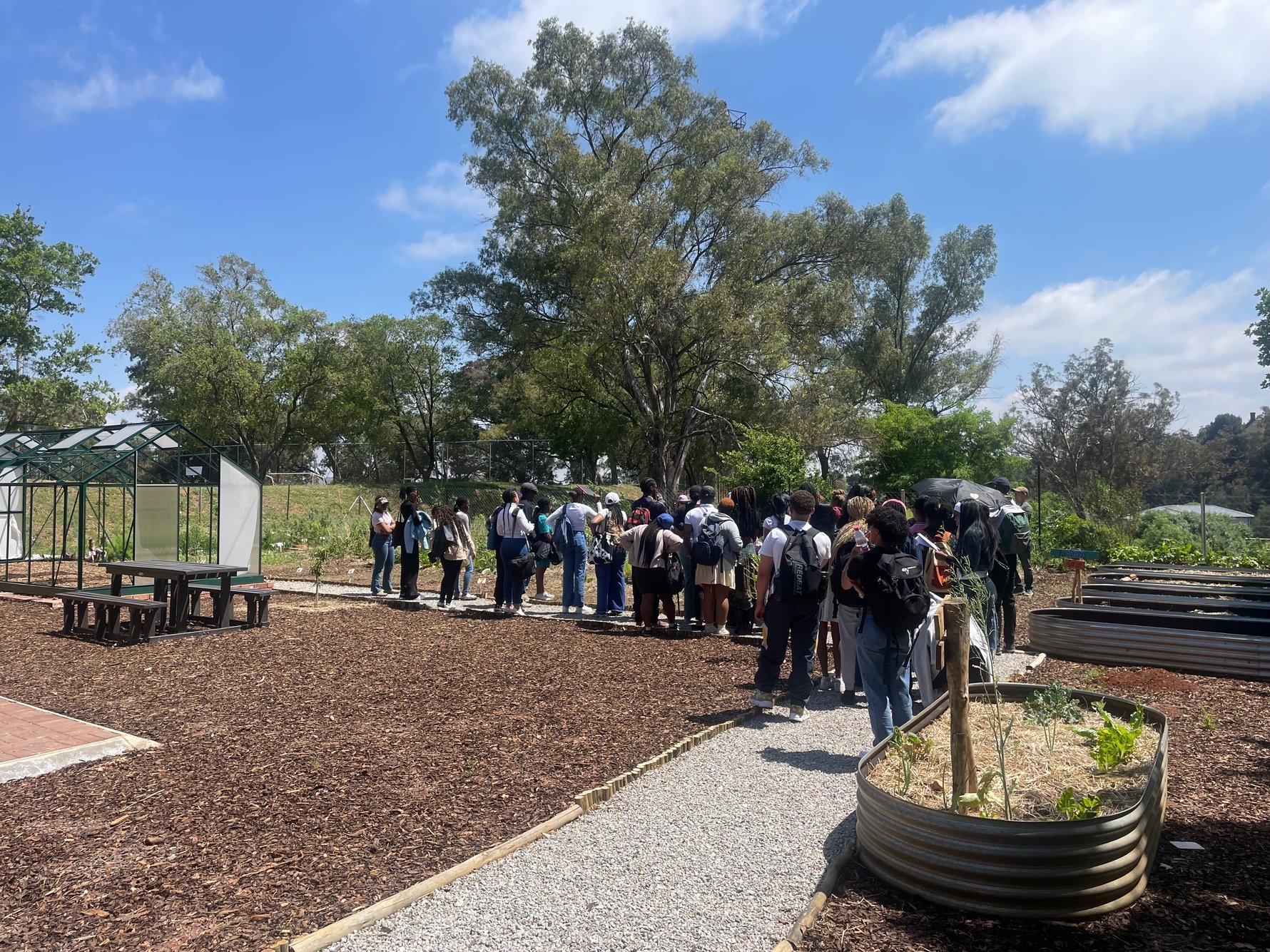
The gardens at Wits primarily serve the student body, supplying the communal kitchen as well as some of the residencies, but as they grow and expand, so too will their reach. Focused on seasonal vegetables, the garden uses agroforestry techniques, a form of regenerative farming that promotes biodiversity. Motloung takes us through the "chop-and-drop" method, where trees are grown amongst your crops and cut down at a certain height for use as mulch and compost. This has the benefit of assisting in soil preservation and providing biomass, but it also means that as we walk through the gardens, there are plenty of bees, butterflies, and other bugs darting through the air.
In addition to the garden, there is also a seed bank which anyone can make use of and they will regularly hold seed swaps where people can exchange seeds. It furthers the goal of zero-input cost agriculture, whereby exchanging and actively harvesting seeds, more people are able to start their own gardens.
Re-imagining the city
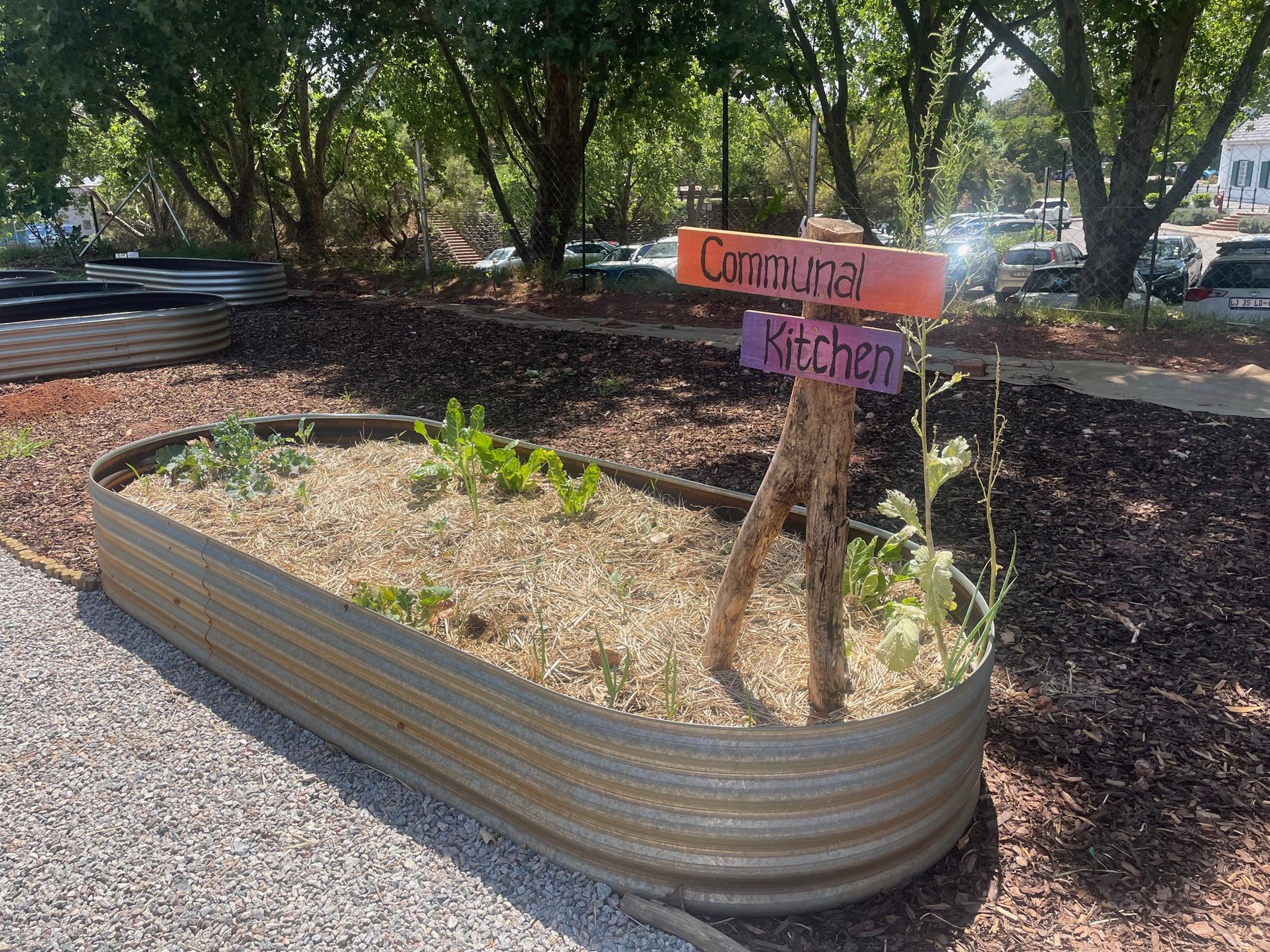
With the threats of climate change, which are expected to disproportionately impact sub-Saharan Africa, a highly concentrated and commercialised food industry, and increasing precarity around supply, the Wits Food Sovereignty Hub is not only filling a pressing material need right now, but is charting alternative paths and visions of what our cities and societies can look like.
As Motloung says, "Urban gardening offers us an opportunity to re-imagine the city not just as concrete and buildings but as a place where food can be grown, ecosystems can thrive, and communities can build resilience." It prioritises care of the garden, and by extension of the community around it, and places the well-being of people and the world around us as the core of its agenda.
"Many see farming as outdated or unprofitable. We need to reframe it, show that growing food is creative, powerful." – Nkululeko Motloung
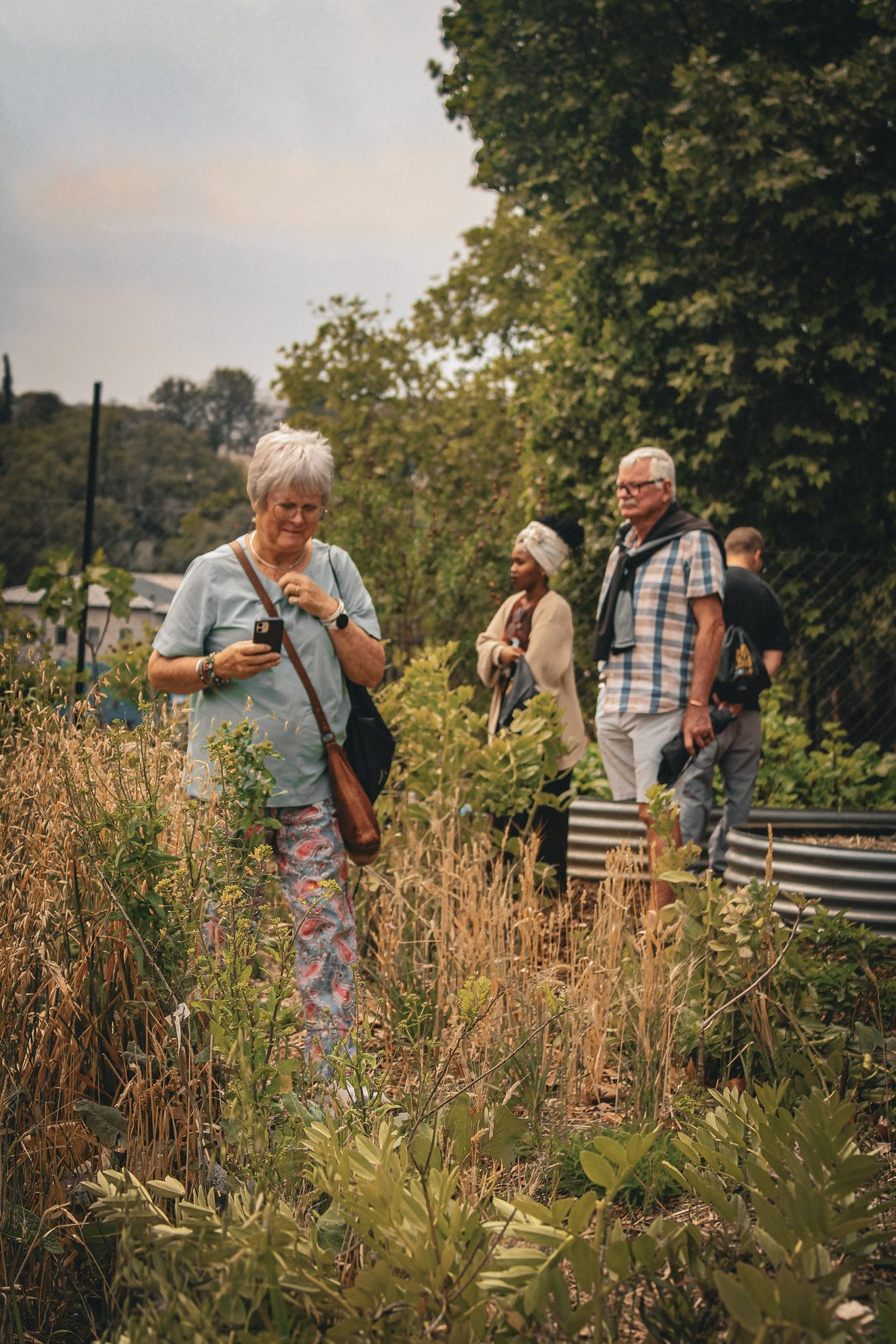
This is an urgent intervention. Food waste is a global issue, while commercial agriculture often strips biodiversity and is more resource-intensive than is necessary. Through the use of indigenous and alternative knowledge systems, Motloung emphasises that the gardens also connect people to land and local food traditions.
The Wits Food Sovereignty Hub is part of a growing number of initiatives seeking to solve issues faced by communities in Johannesburg through active participation and engagement. Here, Makers Valley in Lorentzville and Water for the Future are two projects which, similarly to the Wits Food Sovereignty Hub, link environmental and social issues in order to find holistic solutions.
Food sovereignty is about more than just addressing hunger, with Motloung pointing to how it is about changing the way we define our own food systems – how we grow, share, and protect our food. "It’s about restoring dignity, resilience, and traditional knowledge within communities," he says. Through Wits Food Sovereignty Hub, we get a glimpse at the creative power of urban gardening, and the possibilities of a more just future.
Q&A with Nkululeko Motloung, founder of Plenty Green Africa
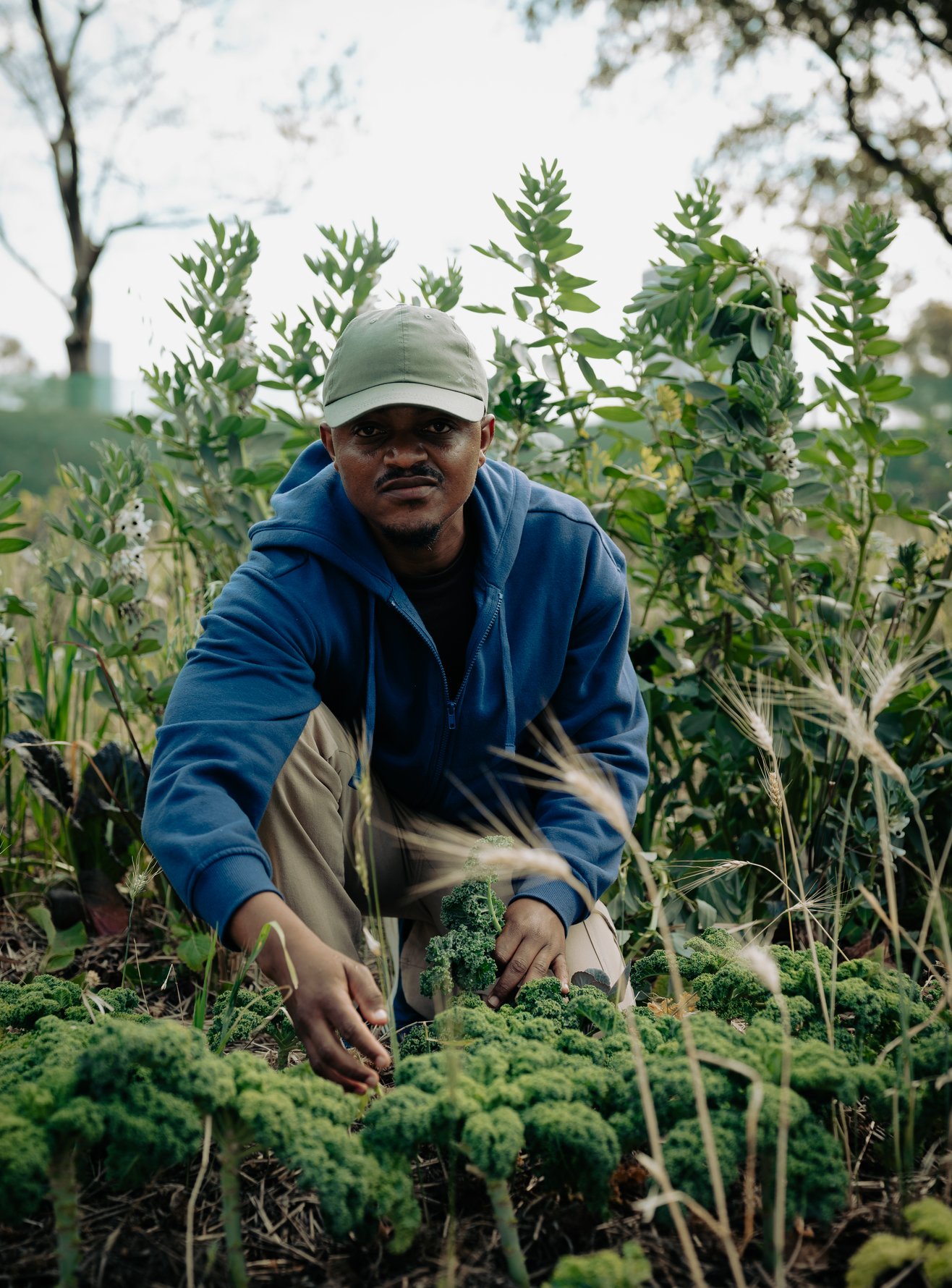
Have you always had green fingers?
Not always – but I’ve always been curious about how things grow. My journey began with a small home garden, and over time, it became a lifestyle and a care practice.
Tell us about the philosophy that underpins your work in this space.
Our philosophy is rooted in regeneration and green living. We draw from permaculture and indigenous knowledge systems to guide our approach – caring for the Earth, caring for people, and restoring balance. It’s about designing systems that are abundant, resilient, and restorative.
You often talk about merging culture, land, and sustainability. What does that intersection look like in practice?
In Johannesburg, it means transforming unused or neglected spaces into gardens that carry cultural and ecological meaning.
Why do you think there aren't more young people getting involved in growing food, and how can we make it feel relevant and exciting to them?
Many see farming as outdated or unprofitable. We need to reframe it, show that growing food is creative, powerful, and connected to innovation, wellness, and climate action.


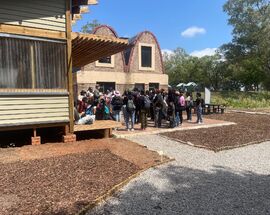
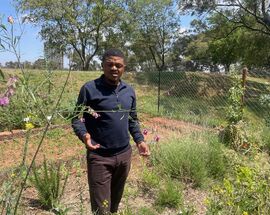
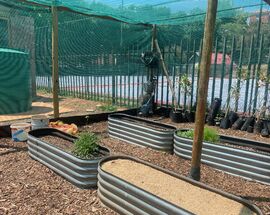


Comments